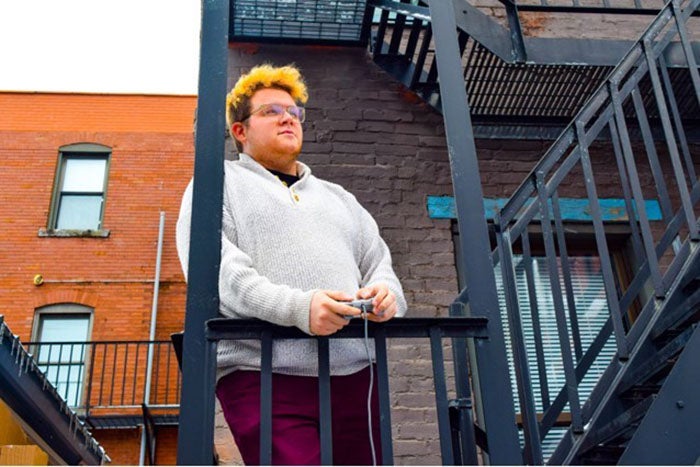 Pat Healy came to Pitt planning to study neuroscience. But as a sophomore, he worked on a project developing a video game that would teach brain development to lower-income parents. The project sparked his curiosity. What else, he wondered, could video games do?
Pat Healy came to Pitt planning to study neuroscience. But as a sophomore, he worked on a project developing a video game that would teach brain development to lower-income parents. The project sparked his curiosity. What else, he wondered, could video games do?
Healy spent the rest of his undergraduate career answering that question (and he continues to explore it as a PhD candidate in the School of Computing and Information).
Video games’ unique capabilities generated collaborations with students and faculty from across the university. The humanities in particular provided surprisingly fertile ground. (One of Healy’s three bachelor’s degrees is in philosophy.)
He worked with graduate students in the English department on an interactive fiction project, an experimental philosophy game centered on the #MeToo movement and helped design a Pokemon: Go–style augmented-reality game for parents to play with kids.
“I’ve really been fueled by the fact that every field could be helped by having someone with technical skills,” says Healy.
And as an ambassador of gamification, Healy founded games-edu, a club connecting students and faculty to develop games across disciplines. The club encapsulates Healy’s central career goal: creating games that educate, initiate important conversations, and otherwise improve people’s lives.
